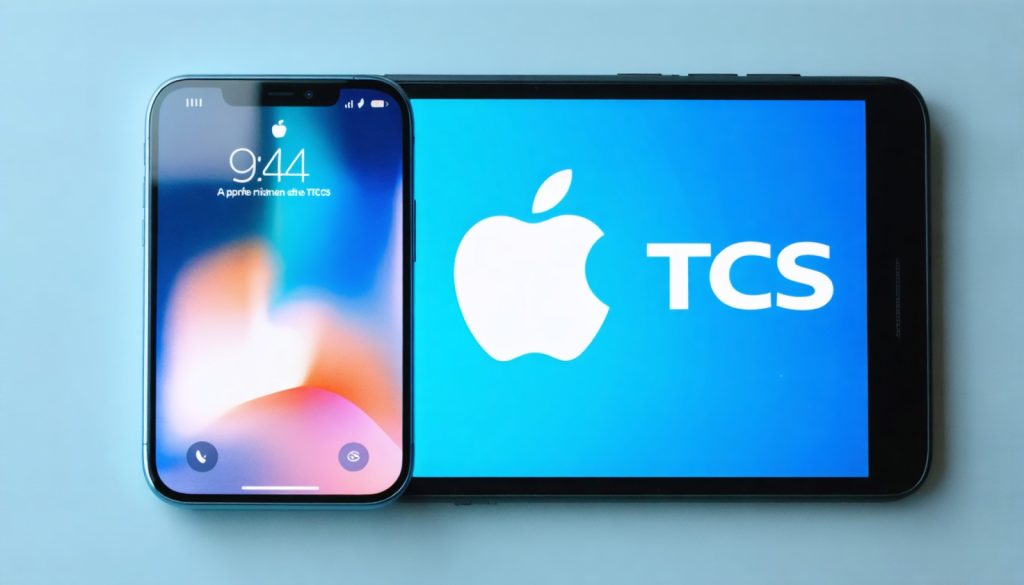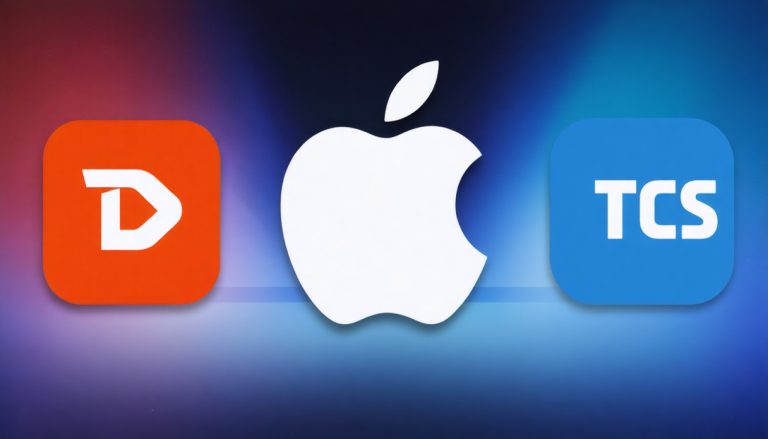
- Apple leads the global smartphone market with a 19% share, overtaking Samsung, driven by demand in emerging markets and Chinese subsidies.
- Samsung launches the Galaxy M56 5G in India, featuring a 50MP triple rear camera and Gorilla Glass Victus+, at Rs 24,999, to strengthen its market stance.
- Tata Consultancy Services (TCS) becomes the world’s second-largest IT services company, achieving over $30 billion in revenue, highlighting its innovation and adaptability.
- Infosys faces challenges, terminating 240 trainees for not meeting training benchmarks, emphasizing strict industry standards.
- Xiaomi enters India’s budget phone market with the Redmi A5, offering a robust battery and 32MP camera focus on affordability.
- Asus introduces AI-driven ExpertBook P Series in India, targeting high-end business needs with military-grade durability.
- The tech industry remains dynamic, characterized by innovation, competition, and high adaptability amidst challenges and transformational growth.
The ever-evolving landscape of technology continues to unfurl with seismic shifts, where giants like Apple, Samsung, and Tata Consultancy Services (TCS) redefine their positions on the global stage.
For the first quarter of 2025, Apple has carved out an unprecedented victory, toppling Samsung to command a 19% share of the global smartphone market. This comes as Apple rides the wave of burgeoning demand from emerging markets and capitalizes on government subsidies in China. Analysts, however, sound a note of caution as geopolitical tensions and economic flux could cloud the horizon later in the year.
Meanwhile, Samsung, the erstwhile smartphone leader, strategically counters with the launch of its Galaxy M56 5G in India. This move not only strengthens Samsung’s market presence but also sets a competitive tone against regional competitors. The new device, armed with a formidable 50MP triple rear camera and cutting-edge Gorilla Glass Victus+, symbolizes Samsung’s commitment to durability and performance, offered at a competitive price point of Rs 24,999.
In the realm of IT services, Tata Consultancy Services has clinched a historic milestone by becoming the world’s second-largest IT services company. With an annual revenue surpassing $30 billion, TCS underscores its dominance through innovation and agile solutions tailored to customer needs. The company’s narrative of being the ‘Perpetually Adaptive Enterprise’ resonates with its vision of sustained, adaptive growth at a critical juncture in global IT dynamics.
Contrasting these success narratives, Infosys grapples with internal challenges, as it terminates 240 trainees who did not meet training benchmarks. This highlights the intense scrutiny and expectations within the tech industry, reflecting the demanding standards that shape today’s tech workforce.
In other noteworthy developments, Xiaomi’s launch of the Redmi A5 signals a robust entry into India’s budget smartphone market, promising enduring battery life paired with a powerful 32MP camera—all priced with affordability in mind. Equally compelling is Asus’s unveiling of AI-driven ExpertBook P Series in India, designed to meet the high demands of modern business environments and elevate productivity with military-grade durability.
As tech titans reposition themselves and innovate for future growth, the sector brims with potential and inspiration as well as challenges that test corporate resolve. The common thread through these stories is an unyielding drive towards excellence and adaptability—a reminder of the relentless momentum of technological advancement. In this vibrant tapestry of technology news, one thing is clear: the frontier of innovation never rests.
Sweeping Changes in the Tech Landscape: What You Need to Know
The Global Smartphone Battlefield: Apple vs. Samsung
The dynamic rivalry between Apple and Samsung continues to intensify as each company leverages strategic advancements to dominate the global smartphone market. In the first quarter of 2025, Apple has secured a commanding 19% share, surpassing Samsung and highlighting significant gains from emerging markets, bolstered by governmental incentives in China. While this development marks a milestone for Apple, analysts caution that geopolitical tensions and potential economic fluctuations could present obstacles in late 2025.
Samsung is not lagging behind; it has launched the Galaxy M56 5G in India in a calculated move to strengthen its foothold. Highlighted by its premium 50MP triple rear camera and protected by Gorilla Glass Victus+, the device is priced competitively at Rs 24,999. Samsung’s strategy exemplifies its focus on robust performance and market adaptability.
TCS’s Ascension in IT Services
In IT services, Tata Consultancy Services (TCS) has ascended to the position of the world’s second-largest company in the sector by surpassing $30 billion in annual revenue. TCS’s business model, coined the ‘Perpetually Adaptive Enterprise,’ emphasizes innovation and flexibility, significant factors behind its remarkable rise. This adaptive strategy enables TCS to craft agile, customer-centric solutions amid shifting global IT dynamics.
Training and Performance Challenges: Infosys’s Struggle
Conversely, Infosys faces challenges with the termination of 240 trainees who did not meet required training benchmarks. This incident underscores the rigorous standards and expectations within the tech industry, showcasing the pressing need for continuous skill development among tech professionals.
Xiaomi’s Budget Revolution and Asus’s Business Solution
Xiaomi has made noteworthy strides with the release of Redmi A5 in India, targeting the budget market with its long-lasting battery life and 32MP camera, balancing performance with affordability. Simultaneously, Asus has released the AI-driven ExpertBook P Series in India, designed to fulfill contemporary business demands and productivity while offering military-grade durability.
How to Choose the Right Smartphone in 2025
When selecting a smartphone, consider your primary use cases—whether for photography, gaming, or work. Evaluate hardware specifications such as camera quality, battery life, and processor performance. Apple’s current market share suggests strong consumer trust, bolstered by government subsidies, while Samsung’s competitive pricing and feature-rich devices offer formidable alternatives.
Tech Industry Trends and Predictions
Looking toward the future, the industry might witness further consolidation as more companies strive to capture key market segments. Geopolitical factors and economic conditions may also play significant roles in shaping 2025’s landscape, with various companies focusing on adaptive growth strategies.
Pros and Cons of Major Devices
Apple (iPhone series):
– Pros: Integrated ecosystem, excellent camera quality, fast updates.
– Cons: High price point, limited customization compared to Android.
Samsung (Galaxy M56 5G):
– Pros: Competitive pricing, cutting-edge camera technology, robust durability.
– Cons: Heavy software enhancements, may have slower updates compared to other Android devices.
Conclusion: Keys to Navigating the Tech Revolution
To thrive amidst these technological advancements, focus on adaptability and keen observation of industry trends. Whether choosing a new smartphone or exploring IT services, prioritize solutions that align with both personal and professional goals.
For further insights into ongoing tech developments, visit the official websites of these tech giants:
– Apple
– Samsung
– Tata Consultancy Services
– Infosys
– Xiaomi
– Asus



